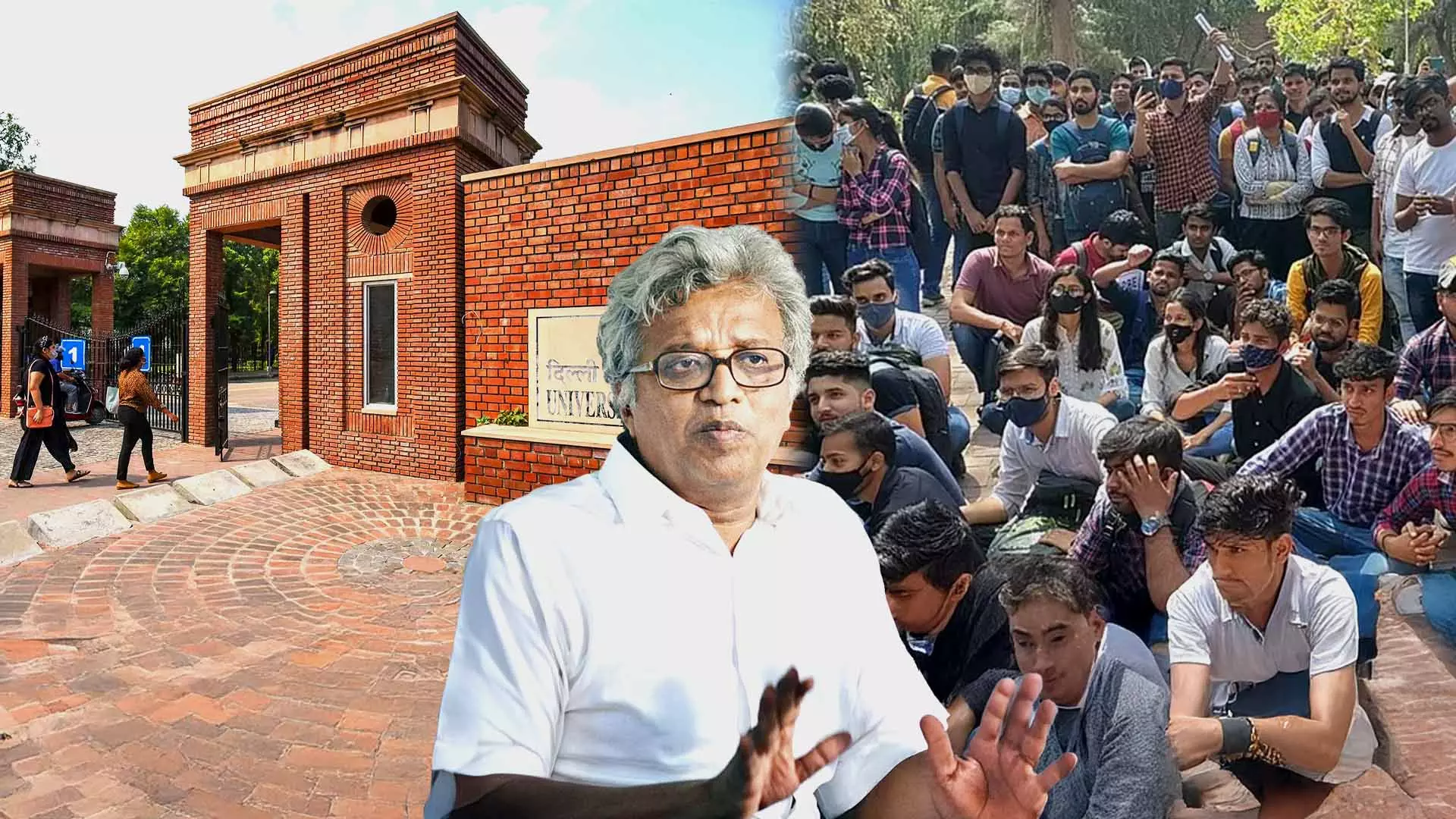
Prof Manivannan: Politicisation is eroding universities’ democratic soul
The Federal speaks to Prof Ramu Manivannan on rising administrative control and the crisis of academic freedom in India’s universities

India’s universities, once celebrated as hubs of free thinking and open debate, are witnessing a steady erosion of autonomy. Administrative controls, funding constraints, and politicisation are reshaping academic culture. The Federal spoke to Prof Ramu Manivannan, political scientist and visiting professor at universities across the world, about the worrying trends transforming Indian higher education.
This reflects the changing academic and administrative culture across India, not just in Delhi University, but in many other institutions. The Delhi School of Economics and its Department of Sociology have long been respected for their vibrant intellectual culture. To cancel a weekly colloquium that has been held for over 60 years is deeply disheartening.
There has never been a precedent requiring permission for these Friday sessions. Academic discussions, even if they touch on political subjects, are part of the learning process. Universities must see such forums as spaces of democratic exchange, not as threats to authority.
Earlier, there was more openness and a sense of academic democracy. Universities like JNU and DU were known for encouraging debate and dissent. These were “oxygen spaces” for a healthy political society.
Today, that democratic space is shrinking. Administrative control has expanded while classroom democracy — the free exchange of ideas between teachers and students — is weakening. Around the world, too, we see increasing repression of public views, but in India, it’s particularly troubling because our universities were once beacons of free expression.
Because classrooms are where students connect theory with real-world issues — human rights, gender justice, democracy, land, and tribal rights. You can read a thousand textbooks, but without interacting with real people and voices from outside, learning remains incomplete.
The challenge today is that this interaction is being restricted. Ironically, the same political parties that seek space in universities while in Opposition tend to curb it when in power. The moment universities question authority, they’re labelled “rebellious” or “urban Naxal.” That’s the contradiction of our democracy.
Some level of regulation is fine — attendance tracking or leave records, for instance. But when administrative control overrides academic freedom, learning suffers.
Universities today are being run by bureaucrats rather than scholars. Many institutions, such as Madras University, have gone years without vice-chancellors or faculty appointments. Without leadership, how can teaching or research thrive? And when discussions and colloquiums are cancelled elsewhere, it creates a contradictory picture — a lack of governance where it’s needed, and excessive control where it’s not.
Because of both — lack of funds and mismanagement. Many senior university appointments — vice-chancellors, registrars, and administrators — are politically influenced. Accountability is lost.
Universities shouldn’t have to depend on private collaborations to survive. Like public hospitals and schools, they deserve consistent state funding. Yet, even when funds are released, they’re often misused due to corruption and political favouritism.
Private universities, on the other hand, face little scrutiny, even though they have their own set of problems. The debate on their functioning rarely reaches public discourse.
Digitally linking universities to share resources is a good idea in principle, as it democratises access to knowledge. But the “One Nation, One Subscription” model raises concerns about centralised control.
If all academic content is routed through a single national subscription, it can be used to monitor, restrict, or politicise what universities read or teach. There’s a fine line between government oversight and political party control, and that line is blurring rapidly.
Extremely serious. Some universities are being run by ad hoc committees and teacher lobbies that act in line with the ruling political parties. The appointment process itself has become highly personalised as individuals are selected not for scholarship, but for loyalty.
We don’t have to wait for long-term results. The damage is already visible in declining academic standards, reduced opportunities for students, and loss of public trust in higher education.
The content above has been transcribed from video using a fine-tuned AI model. To ensure accuracy, quality, and editorial integrity, we employ a Human-In-The-Loop (HITL) process. While AI assists in creating the initial draft, our experienced editorial team carefully reviews, edits, and refines the content before publication. At The Federal, we combine the efficiency of AI with the expertise of human editors to deliver reliable and insightful journalism.

